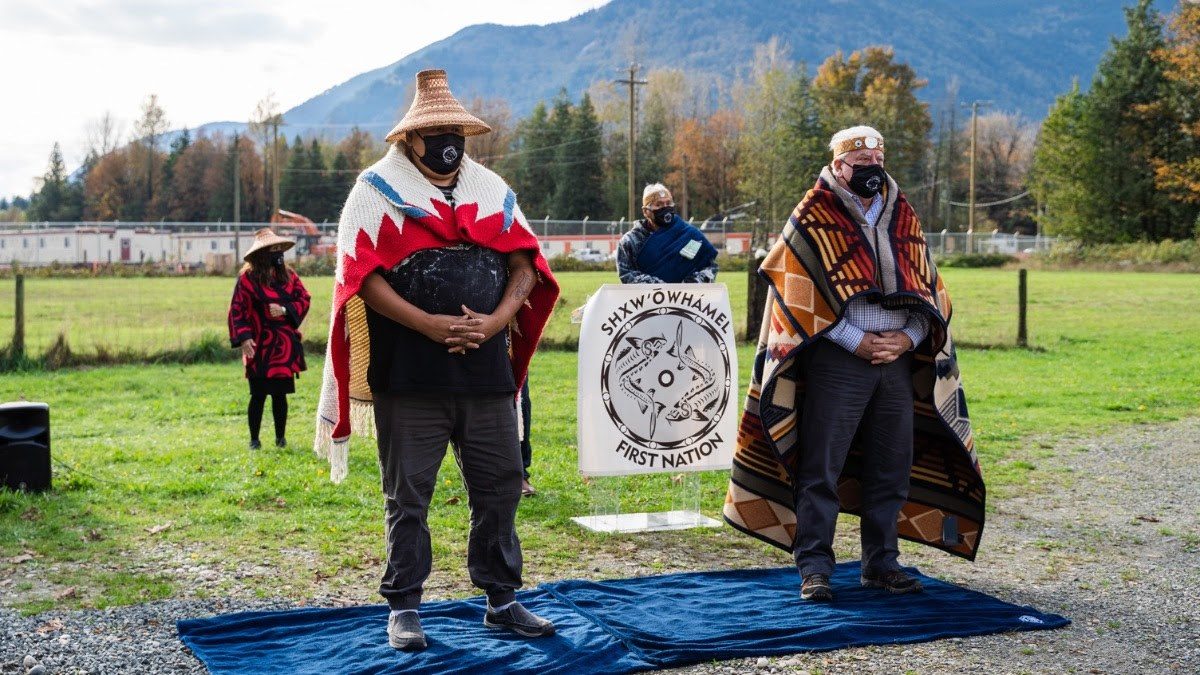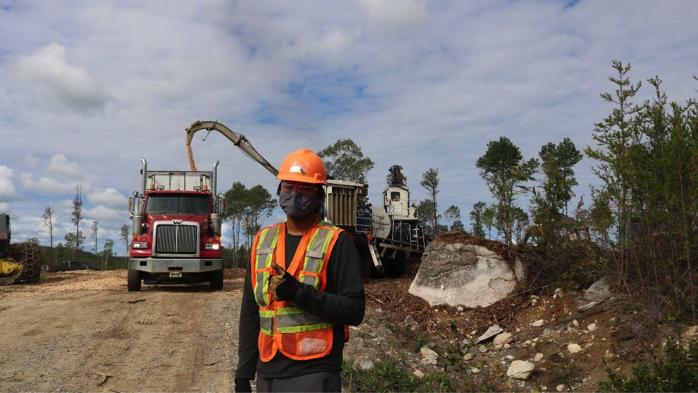Partnerships between pipeline project and First Nations providing jobs, training, economic opportunity and environmental oversight

Communities are expanding as construction advances on the Trans Mountain Pipeline Expansion.
Since work restarted in fall 2019 Indigenous communities along the route have seen an increase in jobs, business contracts, benefits agreements, and training opportunities with the project, while achieving milestones in Indigenous monitoring of work activities.
Here is a look at some of the most recent developments.
Jobs
As of the end of 2020, Trans Mountain and its contractors have hired 1,005 Indigenous people, or just over 10 per cent of the total workforce of about 9,700 workers hired so far. That is up significantly from the end of 2019, when the project and its contractors had hired approximately 300 Indigenous people out of 2,900 total hires.
Including direct, indirect, and induced jobs, Trans Mountain expects that during construction the total workforce will reach the equivalent of 15,000 jobs per year, followed by the equivalent of a further 37,000 jobs per year of operations.
Contracts
Work contracts for the project with Indigenous businesses reached $1.4 billion in value as of the end of 2020.
A key recent project is called Sqémél Lá:lém, which translates into Pit House Lodge in the traditional language of the Shxw’ōwhámél First Nation, located near Hope, B.C.
The worker accommodation complex for Trans Mountain was built by nation-owned Shxw’ōwhámél Ventures and partner LandSea Camp Services. It has a 6-unit recreation facility and a 21-unit kitchen, with dining facilities capable of feeding and seating up to 700 workers and guests. The first guests arrived in December 2020.
Shxw’ōwhámél Ventures says that the most attractive feature of Sqémél Lá:lém is that it allows for a future legacy housing development project for First Nation. In addition, the ongoing maintenance and operation of the camp will remain a source of employment for the community for years to come.
Benefits agreements
The expansion project has increased the number of benefits agreements signed with Indigenous communities. Confidential and unique to each community, the agreements “define a voluntary and mutually beneficial long-term relationship,” Trans Mountain says.

As of January 31, 2021, the project has signed agreements with 73 Indigenous groups in BC and Alberta that represent more than $550 million in benefits and opportunities. That’s up from February 2020, when the project had signed agreements with 59 Indigenous groups representing approximately $500 million in benefits and opportunities.
Benefits can include pipeline construction education and jobs training, skills enhancement, business opportunities or improved community services and infrastructure, Trans Mountain says.
Training
As an example of training opportunities, in summer 2020 Trans Mountain partnered with the Outland Youth Employment Program (OYEP), a national network of natural resource-based education, training and work opportunities for high school aged Indigenous youth.
Participants take part in a six-week program that includes on-the-job safety training, time management skill-building, remote work experience and lessons on managing personal work-life balance.
Through OYEP, participants learn how to work independently and as a group, receive cultural and spiritual support, establish networks, build confidence, and prepare for a successful transition into employment and post-secondary education, Trans Mountain says.
OYEP reports that in the last 19 years of program delivery, participants have had a 92 per cent high school graduation rate, a 99 per cent participant satisfaction rate and 793 high school credits granted.
The 2020 program with Trans Mountain was originally set for Kamloops but was relocated to Prince George to accommodate extra safety protocols and social distancing due to COVID-19.
Monitoring
Last year saw a milestone for the Indigenous Advisory and Monitoring Committee (IAMC-TMX) that oversees the existing Trans Mountain Pipeline and its expansion project.
The brainchild of Ernie Crey, former chief of the Cheam First Nation, and Aaron Sumexheltza, former chief of the Lower Nicola Indian Band, IAMC-TMX was formed in 2017 as a joint body representing the 129 Indigenous communities along the Trans Mountain route along with representatives from the federal government and regulators including the Canada Energy Regulator (CER) and Fisheries and Oceans Canada. The committee has 13 Indigenous members and 6 federal appointees.
The goal of IAMC-TMX is to provide for collaborative, inclusive and meaningful Indigenous involvement in the review and monitoring of the environmental, safety and socioeconomic issues related to the Trans Mountain project and expansion.
In November 2020, IAMC committee members and CER inspection officers completed their 50th “joint compliance verification activity.” Leading up to the milestone, IAMC-TMX conducted some of the first Indigenous monitor-led joint inspections with a federal regulator of Trans Mountain work activities on sites of importance to Indigenous peoples in Alberta and BC.
“The IAMC has supported Indigenous people impacted by this project to be on the ground, overseeing construction with our own knowledge and values,” IAMC-TMX co-chair Michelle Wilsdon said in a statement.
“We have come far, and have farther to go.”
Share This:





 CDN NEWS |
CDN NEWS |  US NEWS
US NEWS 

































Canada’s Advantage as the World’s Demand for Plastic Continues to Grow